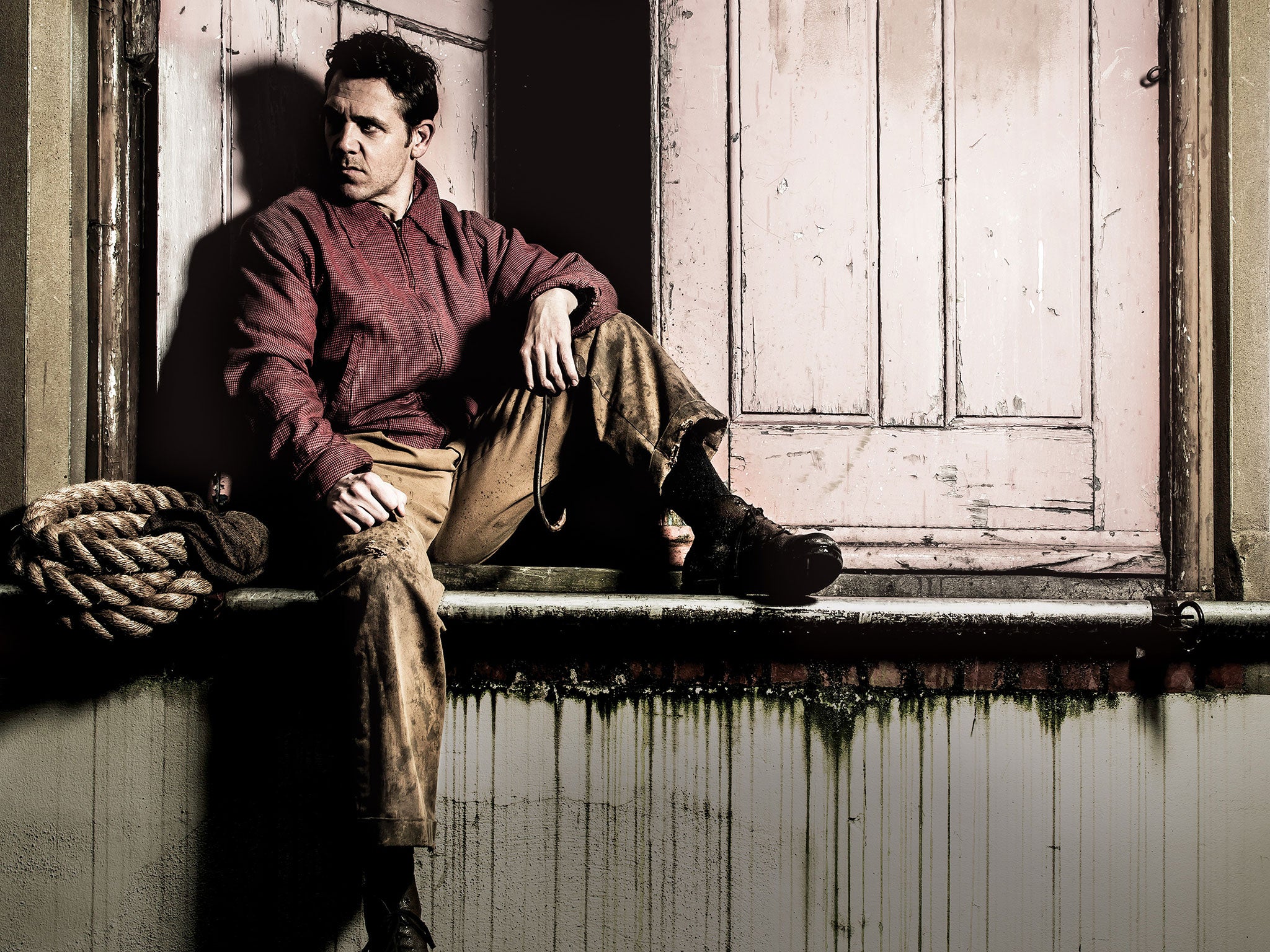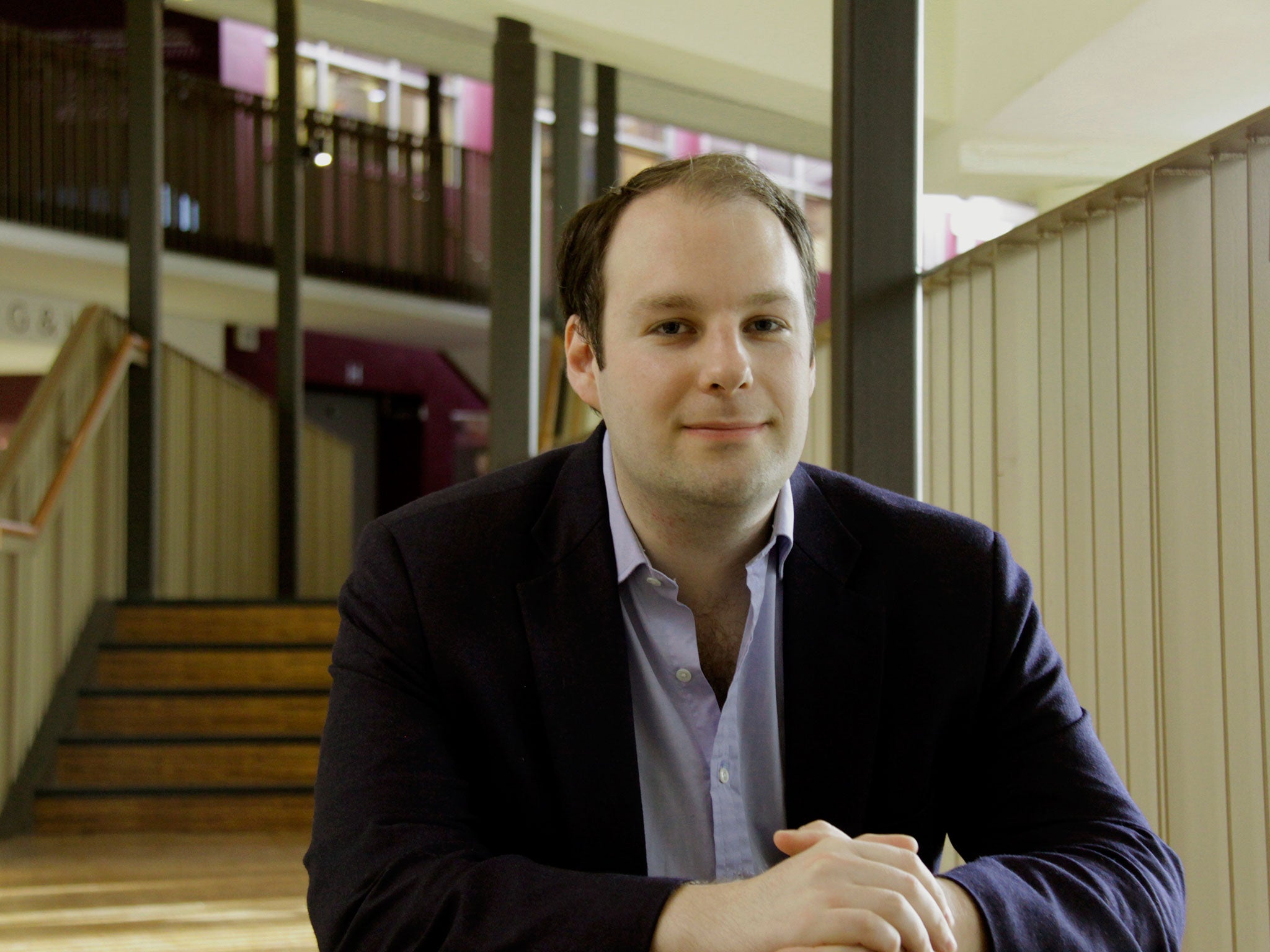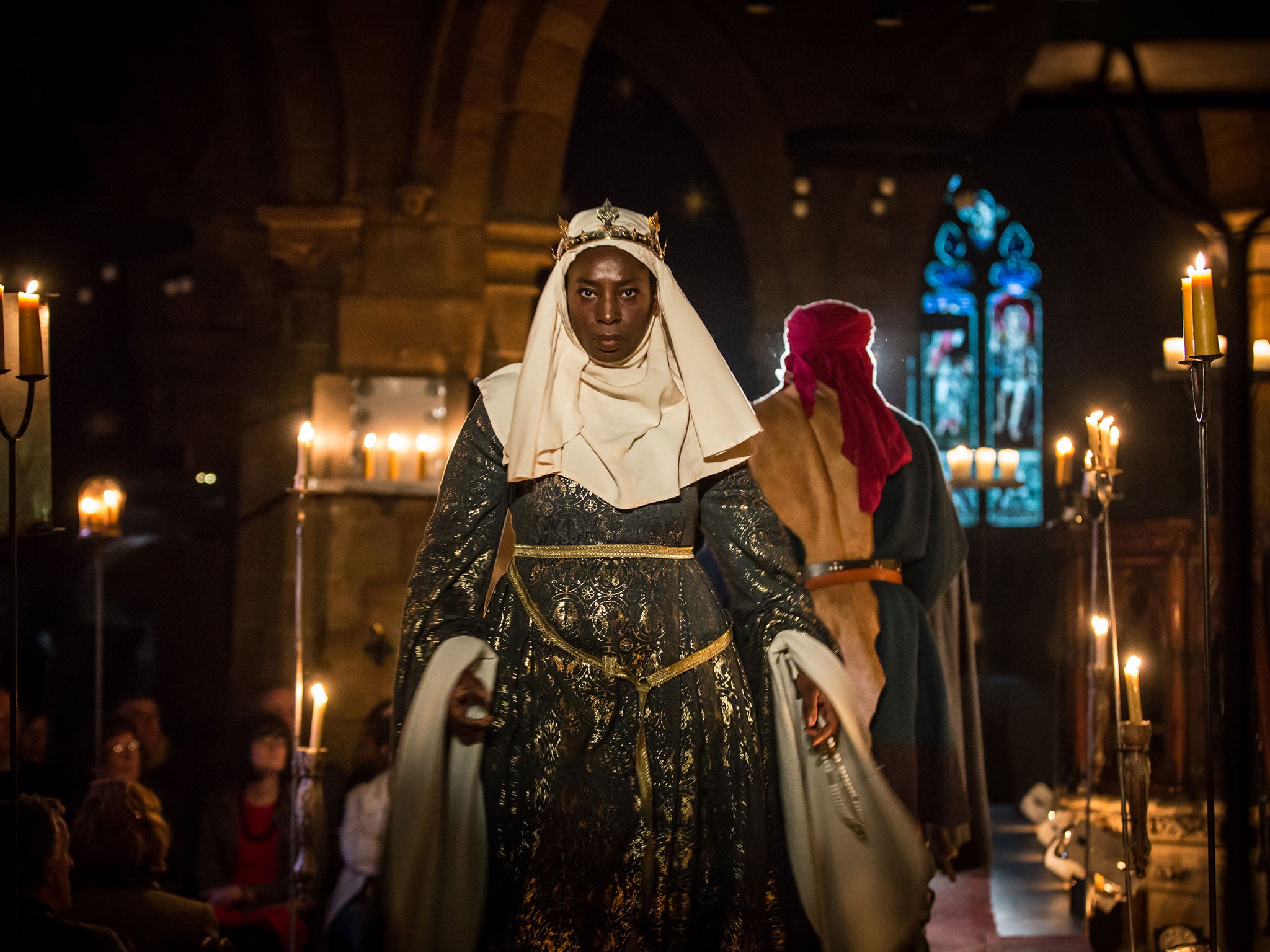James Dacre brings his acclaimed version of Shakespeare’s ‘King John’ to the Globe Theatre
The theatre director and son of Daily Mail editor Paul, who has turned his Northampton venue into a powerhouse and is staging an Arthur Miller world premiere, reveals how his politically provocative plays leave the audience to make their own minds up

Political theatre doesn’t have to be angry new writing taking pot shots at David Cameron; a good story can always layer up meaning and resonance. So it is with the work of James Dacre, artistic director of Northampton’s Royal & Derngate theatres and a man busy this summer filling our stages with meditations on politics and power, the individual versus the system, the private versus the public.
First, there’s his acclaimed revival of King John, which – having been staged in churches – has just arrived at the Globe. This terrifically clear and engagingly quick-witted production certainly proves that Shakespeare made political theatre that stayed relevant across the centuries.
“Just as Shakespeare was mapping the Tudor and Elizabethan courts of his own time on to the court of King John, so too that political rhetoric, and the way we see big decisions made between small groups of men and women which have huge collateral on the life of the nation, speaks powerfully to audiences today,” suggests Dacre.

Then there’s The Hook: a brilliant bit of scheduling, which sees the world premiere of a never-made Arthur Miller film script turned stage show open in Northampton, in the year of Miller centenary celebrations. The play tells the story of a Brooklyn dock worker who has the courage to speak out against corrupt gangs and union bosses who screw over ordinary workers.
Both, says Dacre, were plays that were deliberately scheduled in a general election year. One may have been written in 1590s and the other in the 1950s, but both are relevant to our own times.
We meet at the Globe. Dacre has travelled down from Northampton, where he’s in final rehearsals for The Hook, to mould King John for a theatrical environment that’s radically different to the cloistered, interior spaces it’s been playing. But if he’s stressed by this packed schedule, it doesn’t show: he’s genial and sweet-tempered, and speaks with a measured, even fluency that presumably an education that includes Eton and Cambridge helps engender.
Dacre’s father is the Daily Mail editor, Paul Dacre, while his mother, Kathleen, is a professor of theatre. Both have influenced him – but while Dacre may have edited Varsity, Cambridge’s student newspaper as an undergraduate, he also started directing while still at school. Ultimately, he followed in his mother’s footsteps, rather than his father’s; on graduating, it was the stage, not the newsroom, that won out.
It was obviously the right move. King John arrived at the Globe trailing starry reviews – but that’s something this director, who’s just turned 31, must be used to. His hits have been notably broad in taste and scope, from big adaptations like A Tale of Two Cities to the edgy two-hander The Body of an American. His 2009 production of The Mountaintop won an Olivier award – and he was still in his twenties when he was given the building-running position at the Royal & Derngate two years ago.

“Creatively, so much more can be achieved through partnership,” Dacre says with a genuine generosity. “This year, our work travels to 25 cities. And it does feel like there’s been a real culture shift in the past few years: organisations have been more determined than ever to see what can be jointly achieved. Of course, I’m very new to the job, I’m learning all the time… that feeling of support has been really gratifying.”
Even so, collaborations or convenience aren’t the driving factors; everything starts with the question, why 2015, and why Northampton? “Unless we can answer that then a project doesn’t really progress. Is this an old story being told in a new way, or is it a story that hasn’t been told before? Ideally in any season there will be a range of work for a range of audiences that will entertain and inspire, but also hopefully touch people in a way that does feel relevant to the political and cultural life of Britain in the 21st century.”
So why King John? Dacre was really interested in the way the play explores how power works, in private and in public. The production aims to “say something meaningful about the relationship of politicians to the public, and the difference between the conversations politicians have with the electorate and the conversations politicians have behind closed doors”.
The production is performed with a great deal of pomp and pageantry. Dacre insists all this too is relevant today. “We work to create a living sense of history, but also to interrogate the emotions evoked in audiences when they do watch these great political acts of ceremony. The tension within the piece is between an England which believes in the divine right of Kings, and an England that – as in Shakespeare’s own age – was beginning to question the monarchy’s ability to make the right decisions for the people they ruled over. That tension between royalism and republicanism continues today. I hope the audience will feel both of those emotions.”
Emotions should be stirred up by The Hook too, although perhaps a little less conflictedly: it too prominently features public speech-making, but Miller’s rhetoric clearly celebrates the integrity of a man who dares speak truth to power.
In a twist of cruel irony, The Hook actually prompted Miller to take a stand of his own. In 1948 he and director Elia Kazan were enjoying the success of All My Sons on Broadway, but Miller felt unsatisfied by its narrow audience – he wanted to “write dramas that would politically engage audiences and ask questions about what it meant to stand up to the status quo”, says Dacre. He decided the big screen was the medium for galvanising the masses.
Hollywood initially seemed keen on The Hook. “As it was on eve of production, Miller and Kazan were summoned to a meeting with Harry Cohn, head of Columbia Pictures, and – legend has it – figures like Roy Brewer, the head of the Hollywood unions, and representatives of the FBI,” recounts Dacre. Pressure was put on Miller to rewrite the movie, making several characters villainous communists. “It was an act of political censorship, designed to steer Miller’s script towards the political compass of the time. And Miller very simply said: ‘I am writing about a man who believes in the importance of describing the world as he sees it – and I can’t countenance making changes to my script.’”
It gets worse: within weeks, Kazan had testified in front of the House Un-American Activities Committee, outing friends and collaborators as communists. But Miller would refuse to do so – cementing his reputation as a man with his own integrity. The two men’s friendship, however, was over, and The Hook shelved.
Dacre speaks of its prescience, how it deals with topics that affect our own age: “Zero-hours contracts, the living wage, the corruption at the tops of banks and business and... football! The way in which close-knit communities are experiencing great change as industries change, as new communities move to those areas and threaten jobs prospects. While it is an exciting thing that this production coincides with the centenary of Miller’s birth, it’s altogether a more important thing that it coincides with the general election.”
All this talk of politics – so what about his own leanings? When I ask what he makes of the outcome of the general election, Dacre diplomatically slithers away from the question. Perhaps the fear is it will all get too personal – he is the son, after all, of a very famous right-winger.
Dacre Jnr justified his opacity by saying the urge to do politically provocative work is to make an audience question themselves – never to tell them what to think (would that he could convince his father to take such an approach…)
“You asked me about my politics and I evaded answering, quite deliberately, because I really believe the value of theatre is to challenge and provoke and entertain, but to do so in a way that is not about the creators of the work, but to really ask of audiences how they feel about the world. As a theatre-maker, I create events that put the spotlight on audiences, not on myself.”
Join our commenting forum
Join thought-provoking conversations, follow other Independent readers and see their replies
Comments